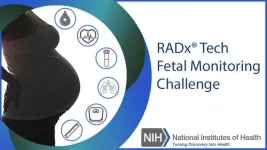(Press-News.org) COLUMBUS, Ohio – Researchers at The Ohio State University Wexner Medical Center and College of Medicine led the creation of evidence-based consensus guidelines for genetic testing and counseling for patients with amyotrophic lateral sclerosis (ALS), a neurodegenerative disease that affects the cells in the brain and spine.
These evidence-based, consensus guidelines provide clinicians with a framework for the offer of genetic testing and outline the information that should be provided to persons with ALS before and after testing. In addition, the guidelines provide specific recommendations regarding test methods and reporting, thus providing guidance to both clinicians and testing laboratories in navigating the challenges of this technology,
The 35 guideline statements are published online in the journal Annals of Clinical and Translational Neurology and include the new recommendation that all persons with ALS be offered comprehensive genetic testing. This will facilitate access to genetic diagnosis and gene-targeted therapies, which are now being provided at the Ohio State University Wexner Medical Center ALS/Motor Neuron Disease Multidisciplinary Clinic and Translational Research Program.
ALS – also known as Lou Gehrig’s disease for the famous baseball who was forced to retire in 1939 because of the incurable neuromuscular disorder – affects more than 31,000 people in the United States, according to the Centers for Disease Control and Prevention.
Advances in ALS gene discovery, ongoing gene therapy trials, and patient demand have driven increased use of ALS genetic testing.
“Despite this progress, the offer of genetic testing to persons with ALS is not yet ‘standard of care’ and many people who desire access to genetic testing are not offered it. We developed ALS genetic counseling and testing guidelines to improve and standardize genetic counseling and testing practice among neurologists, genetic counselors or any provider caring for persons with ALS,” said corresponding author Jennifer Roggenbuck, MS, CGC a licensed genetic counselor and associate professor in the Division of Human Genetics in the department of Internal Medicine at Ohio State Wexner Medical Center.
Guideline recommendations were drafted and the strength of evidence for each recommendation was assessed to reach consensus among a group of content experts for each guideline statement. In summary, all persons with ALS should be offered single-step genetic testing, consisting of a C9orf72 assay, along with sequencing of SOD1, FUS, and TARDBP, at a minimum.
“Rapid progress in the discovery of ALS-associated genes, and a growing recognition of the genetic basis of clinically sporadic ALS, has opened the door to an era of gene-targeted therapies for persons with ALS. These evidence-based, consensus guidelines will support all stakeholders in the ALS community in navigating benefits and challenges of genetic testing,” said co-author Stephen Kolb, MD, PhD, professor of neurology and biological chemistry and pharmacology at The Ohio State University College of Medicine.
Genetic counselors in the United States are board certified by the American Board of Genetic Counseling and offer added value in the care of individuals with ALS. While there has been improvement in access to multidisciplinary care clinics worldwide, the majority of people with ALS do not have access to such clinics.
These practice guidelines can be adopted by neurologists in private practice, in academic settings and by other providers such as nurse practitioners and general practitioners when neurologists are not available. These guidelines will also serve these providers when genetic counselors are not available.
“These guidelines reflect current genomic technology, which will evolve along with our scientific understanding of the genetics of ALS. It is expected that genetic associations with ALS and related disorders will continue expand, and with it, the complexity of results that must be communicated,” Roggenbuck said. “We view these guidelines as a first step toward a uniform and equitable approach to ALS genetic testing that will require revision periodically as new genetic discoveries and new genetic therapies move forward for people living with ALS.
This study was funded by the ALS Association.
# # #
END
Indicators of high school grades and standardized test scores that take into account the levels of school, neighborhood, and family resources available to students are strongly associated with those students’ success in college, according to new research published today. The study, published in AERA Open, a peer-reviewed journal of the American Educational Research Association, emerges against the backdrop of the recent Supreme Court decision to ban race-conscious admissions in higher ...
Diversity fuels prosperity in cities, but where do people from diverse backgrounds meet? A study from the Complexity Science Hub now indicates that locations offering a range of rare shops and services may hold the key.
Extensive research consistently underscores a common factor in successful cities: diversity. Encouraging interactions between individuals of different backgrounds fosters the exchange of ideas, leading to innovation and economic success. “However, segregation persists in urban ...
SAN FRANCISCO, CA [September 18, 2023] — The National Comprehensive Cancer Network® (NCCN®) 2023 Annual Congress: Hematologic Malignancies™ returns to San Francisco this week, for the first time since 2019. The meeting features insights from world-renowned experts on providing optimal, evidence-based treatment for various blood cancers, plus best practices for protecting vulnerable populations in a changing healthcare landscape.
The live event is taking place September 22-23, 2023, at the Hilton San Francisco Union Square. ...
Editor’s Note: September is National Suicide Prevention Month.
COLUMBUS, Ohio – Research led by The Ohio State University Wexner Medical Center and Wesleyan University found that depression screening tools outperformed suicide risk screenings under most conditions.
“We compared the effectiveness of multiple depression and suicide risk screening methods for the purpose of identifying primary care patients who subsequently attempted suicide. Our findings may generate a lot of discussion within the suicide prevention community, as it contradicts long-held assumptions ...
A research team, led by Professor Joonki Suh in the Department of Materials Science and Engineering and the Graduate School of Semiconductor Materials and Devices Engineering at UNIST, has made a significant breakthrough in thin film deposition technology. By employing an innovative atomic layer deposition (ALD) process, Professor Seo successfully achieved regular arrangement of tellurium (Te) atoms at low temperatures as low as 50 degrees Celsius.
The ALD method is a cutting-edge thin film process that enables precise stacking ...
The National Institutes of Health will award up to $2 million in cash prizes to accelerate development of diagnostic and monitoring technologies that improve fetal health outcomes in low-resource settings. The Rapid Acceleration of Diagnostics Technology (RADx® Tech) Fetal Monitoring Challenge calls on scientists, engineers, and clinicians around the country to submit their innovative approaches and compete for prizes and additional resources to support technology development and clinical impact. The challenge is sponsored by the NIH’s National Institute of Biomedical Imaging and Bioengineering (NIBIB), ...
Many pathogens, including the virus that causes COVID-19, are thought to have originated in wild animals before spilling into human populations.
Agriculture is often blamed for accelerating this process, which is known as zoonotic spillover, through deforestation and habitat fragmentation that reduce biodiversity and increase the likelihood of contact between infected wildlife and humans.
But in a Perspectives article published online Sept. 15 in the journal One Earth, University of Michigan ecologist Ivette Perfecto and her colleagues argue that agriculture can both help and hinder: ...
More than 720,000 Floridians will be living with Alzheimer’s disease by 2025. Currently, Florida has the second highest prevalence of Alzheimer’s disease in the United States and is the sixth leading cause of death in Floridians 65 and older.
Although the epidemic of age-related brain dysfunction – of which Alzheimer’s disease is a major factor – is growing at an alarming rate, there is a disconnect between the existing care model designed for urgent care and the progressive nature of this chronic condition, which tends to worsen over time.
To address this widespread health concern, Florida Atlantic University’s Schmidt College ...
(COLUMBUS, Ohio) – Attention-deficit/hyperactivity disorder (ADHD) is among the most common pediatric neurodevelopmental disorders. In 2019, nearly 10% of United States (U.S.) children had a diagnosis of ADHD. Approximately 3.3 million children, or roughly 5 out of every 100 children in the U.S., are currently prescribed medication for ADHD.
In a new study, published today in Pediatrics, researchers at the Center for Injury Research and Policy and Central Ohio Poison Center at Nationwide Children’s Hospital investigated the characteristics ...
The Korea Institute of Civil Engineering and Building Technology (KICT, President Kim Byung-Suk) has developed a 'Road Pothole Filtering Program' to establish an emergency road restoration system for frequent pothole occurrences.
Commonly referred to as 'the landmine of the road,' potholes are a road damage phenomenon in which parts of the asphalt sink into bowl-like depressions. Potholes occur when a significant amount of rainwater infiltrates the road surface, weakening the ground below and causing the asphalt ...




